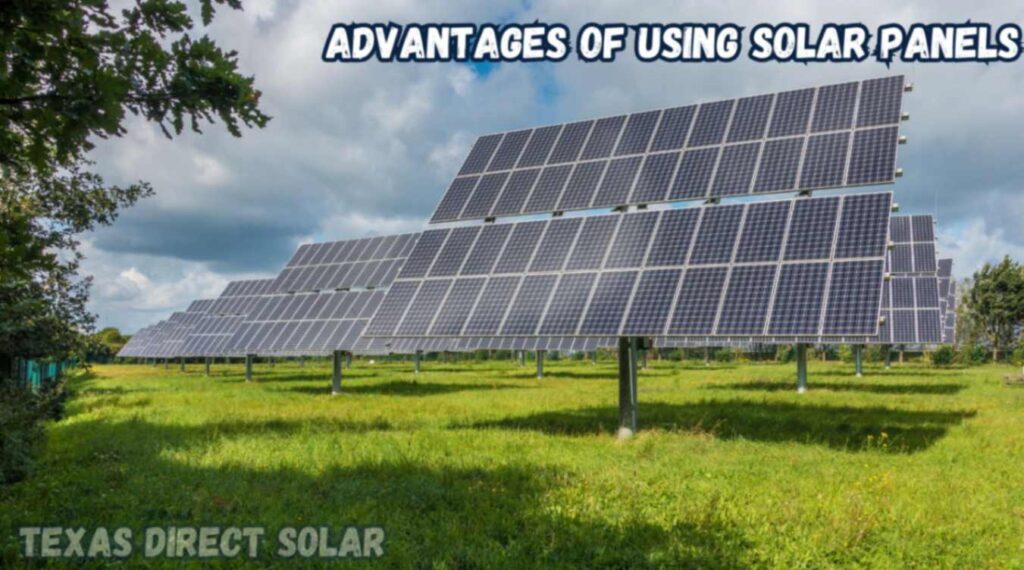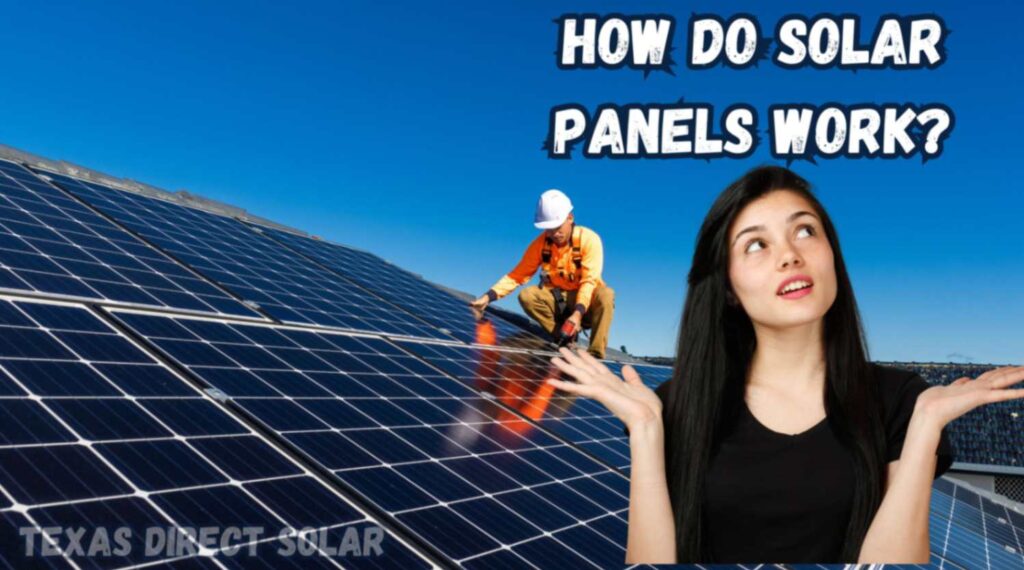Solar panels are a very remarkable technology that can generate electricity utilizing sunlight. They are increasingly used as a clean energy source for homes, businesses, and industries. In this article, we will focus on how solar panels work, their advantages as well as their importance in today’s world, especially when it comes to a clean environment.
What Are Solar Panels?
Solar panels also known as photovoltaic (PV) panels are devices that capture energy from the sun and convert it into electricity. These panels are every photovoltaic cell that is made up of several semiconductor materials and these cells are exposed to sun light in order to produce electrical current by the photovoltaic effect.

- Absorbing Sunlight
Photons of solar energy hit the surface area of the solar panel, and these photons are absorbed by the photovoltaic cells when the solar radiation is incident on the solar panel surface.
- Generating Electric Current
The energy animated photons excite cells in the electrons, which will easily fly and cause flow of electric current. This is what we call the photovoltaic effect.
- Converting DC to AC
Electricity produced is in direct current form, a DC form of electricity which must be inverted to an AC form of electricity making it suitable to use different household appliances and existing electric grid systems.
Key Components of Solar Panels
In order to comprehend the concept of solar panels’ effective operation, let’s examine the most basic elements:
• Solar cells: – the heart of energy production. The Node converting sun rays into electricity.
• Inverter: Equipment converting direct current into alternating current.
• Battery (Optional): An electrical storage unit that stores unused energy.
• Mounting system: The device which keeps panels fixed in a certain position, spreading the sun rays most effectively.
Types of Solar Panels
Differences in solar panels may serve different purposes. These are the three most common.
- Monocrystalline Panels: High efficiency and long life being their trademark.
- Polycrystalline Panels: Present a low-cost good option but slightly falls short in efficiency.
- Thin Film Panels: These light weight and flexible panels are ideal for different types of installations
Advantages of using Solar Panels
• Environmentally Friendly: Reduces the carbon footprint by dependence on renewables.
There are lots of pros powered by the use of solar panels that you will find worthwhile in making investments
• Cost-Effective: Reduced electricity charges in the long run.
• Easily maintainable: After installation maintenance is minimal.
• Energy autonomy: Responsible for one’s own power and dependence on grid is reduced.

Factors That Impact Solar Panel Efficiency
The efficiency at which solar photovoltaics are penetrating the market is sporadic due to various variables:
- The amount of Sun the panels can have access to: more the insolation, more the energy produced.
- Angle of tilt: gets maximum sunlight easily when there is proper inclination.
- Weather Conditions: When it’s cloudy, less energy is produced by panels.
- Regular Maintenance: Routine cleaning of the panels will enhance efficiency.
How Do Put Up Solar Panels
In general terms, solar panels are put up by going through these distinct stages:
- Evaluate Your Site: Look for a roof or an area on the ground where there is enough sunshine.
- Choose Your System: Go ahead and choose the kind of solar panels to use, the number necessary and so forth.
- Professional Installation: Place the panels in position and link them to an inverter.
- Inspection and Activation: Check the system and switch it on to produce energy.
Is It Worth Having Solar Panels?
Sure! With solar panels, not only will energy costs be cut, but they will also protect the ecosystem. Given government support and additional energy savings, solar panels make good sense as an investment.
Frequently Asked Questions (FAQs)
- Do Solar Panels Work in the Winter Season?
Yes, solar panels do work in winter, provided there’s enough sunlight available albeit with some efficiency dip as day lengths are shorter.
- What Is the Average Life Span Of Solar Panels?
A majority of the panels will last for between twenty-five to thirty years and will hardly deteriorate in efficiency.
- Do Solar Panels Require Direct Sunlight?
Yes, it is possible to have solar panels generate electricity even on cloudy days, this however will be at a much less efficiency level.
Conclusion
Solar panels make for an effective and eco-friendly energy solution. Being able to use sunlight to generate power, they cut down electricity costs, reduce the carbon footprint, and provide energy security in the future. It is helpful to know how do solar panels work, as it will help when considering going for this renewable energy source.
Accept the solar panel challenge and become a trendsetter for a greener tomorrow!
If you want to get solar installation, solar cleaning service and other solar panels related services contact on https://texasdirectsolartx.com/

